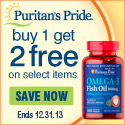Do you know about antioxidants and their importance to good health and proper nutrition? It seems the more scientists learn about antioxidants, the more their value and potential increases. Antioxidants have shown promise in everything from preventing heart disease and cancer to slowing the degeneration of the eyes and brain.
Antioxidants work in a fairly straightforward way. What makes them so effective is their ability to neutralize a group of highly reactive, highly destructive compounds known as free radicals. The production of free radicals is a normal bodily process, part of the process of breathing and living.
Free radicals are normally neutralized by the body’s natural defense system, rendering them harmless. However, anything that weakens the body’s natural defenses weakens its ability to fight off these free radicals. Those weakening agents include environmental pollution, poor diet, excess UV radiation and even excessive consumption of alcohol.
When free radicals are not properly neutralized, the body is left open to damage. Free radicals can damage the structure and function of cells in the body, and recent evidence suggest that free radicals contribute to the aging process and may play a role in a great many illnesses, including cancer and heart disease.
While vitamin supplements containing antioxidants such as vitamin C can be important, there is no substitute for a healthy diet. It is estimated that foods contain more than 4,000 compounds that have antioxidant qualities. Eating a healthy diet is the only way to take advantage of these antioxidant properties.
In addition to the well known antioxidants like vitamin C and vitamin E, healthy foods like fruits, vegetables and whole grains also contain lots of lesser antioxidants. Scientists are only now discovering the important role these lesser known antioxidants have in keeping the body healthy.
Let’s examine some of the dietary sources for the major antioxidant vitamins.
Vitamin C is probably the most studied of all the antioxidant vitamins. Also known as ascorbic acid, vitamin C is a water soluble vitamin found in all bodily fluids, and it is thought to be one of body’s first lines of defense against infection and disease. Since vitamin C is a water soluble vitamin, it is not stored and must be consumed in adequate quantities every day. Good dietary sources of vitamin C include citrus fruits such as oranges and grapefruits, green peppers, broccoli and other green leafy vegetables, strawberries, cabbage and potatoes.
Vitamin E
Vitamin E is a fat soluble vitamin that is stored in the liver and other tissues. Vitamin E has been studied for its effects on everything from delaying the aging process to healing a sunburn. While vitamin E is not a miracle worker, it is an important antioxidant, and it is important that the diet contain sufficient amounts of vitamin E. Good dietary sources of this important nutrient include wheat germ, nuts, seeds, whole grains, vegetable oil, fish liver oil and green leafy veggies.
Beta-carotene
Beta-carotene is the nutrient that gives flamingos their distinctive pink color (they get it from the shrimp they eat). In the human world, beta-carotene is the most widely studied of over 600 carotenoids that have thus far been discovered. The role of beta-carotene in nature is to protect the skins of dark green, yellow and orange fruits from the damaging effects of solar radiation.
Scientists believe that beta-carotene plays a similar protective role in the human body. Sources of beta-carotene in the diet include foods like carrots, squash, sweet potatoes, broccoli, tomatoes, collard greens, kale, cantaloupe, peaches and apricots.
Selenium
Selenium is one of the most important minerals in a healthy diet, and it has been studied for its ability to prevent cell damage. Scientists see this ability to protect cells from damage as very important in the prevention of cancer, and selenium is being studied for possible cancer preventative properties.
It is important to get the selenium you need from your diet, since large doses of selenium supplements can be toxic. Fortunately, selenium is easily found in a healthy diet. Good sources of dietary selenium include fish and shellfish, red meat, whole grains, poultry and eggs, and garlic. Vegetables grown in selenium rich soils are also good sources of dietary selenium.




















0 comments:
Post a Comment